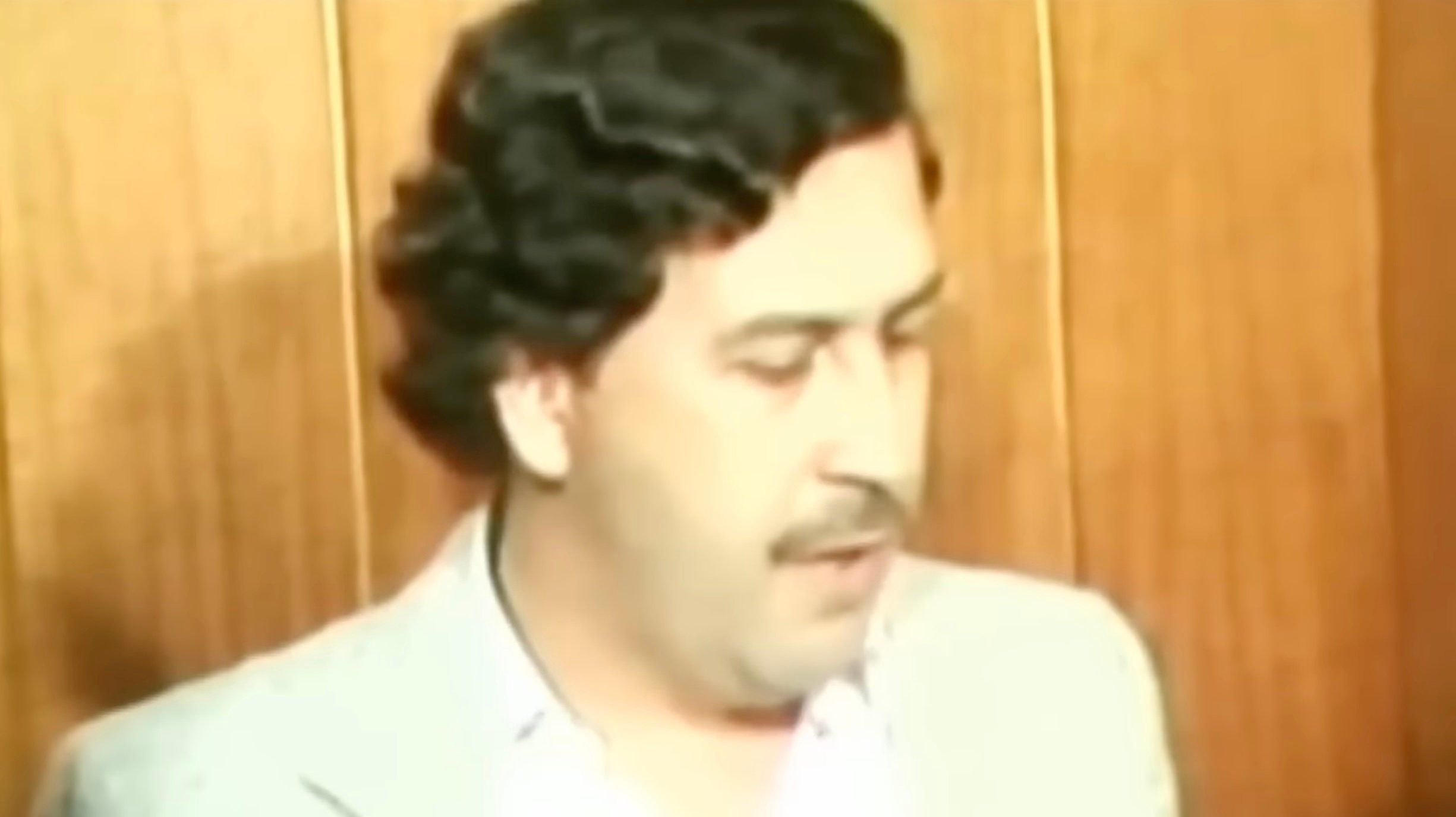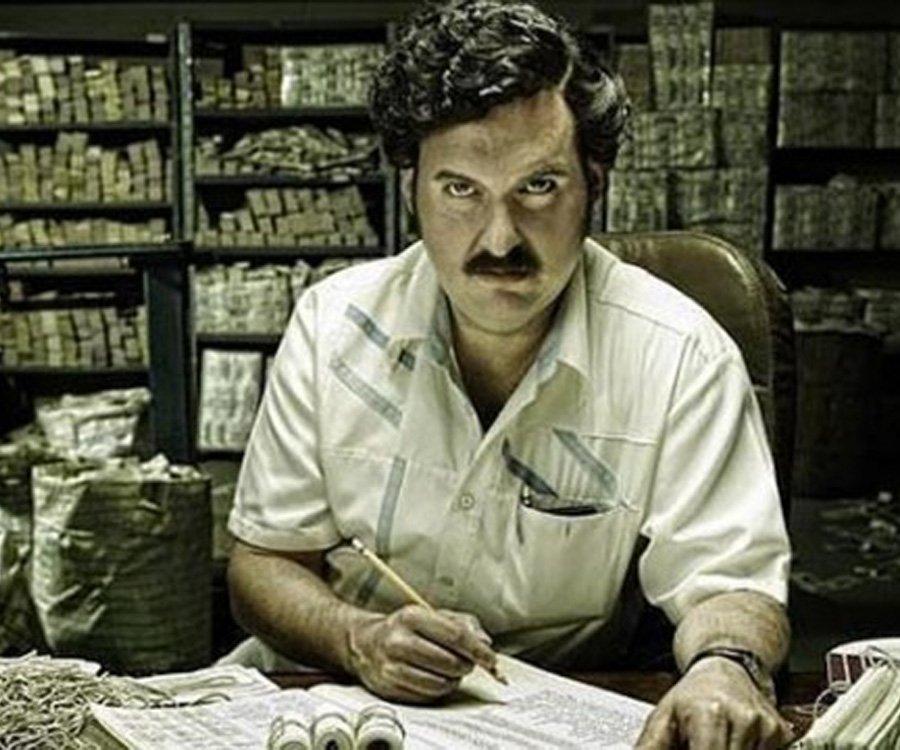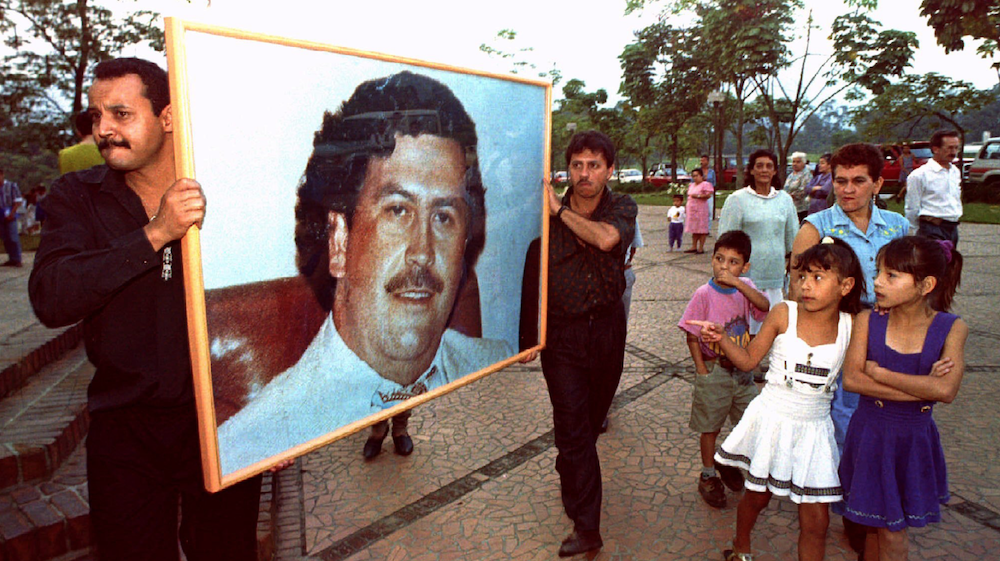How Many Languages Did Pablo Escobar Speak? Unpacking The Mystery
Have you ever wondered about the private life of historical figures, like what languages they might have spoken? It's a pretty common thought, actually. When we think about someone who moved in international circles, even if those circles were, shall we say, a bit outside the usual, it feels natural to ask about their communication skills. People are often curious about Pablo Escobar, and this question about his language abilities comes up quite a bit. It’s a way, you know, of trying to understand more about the person behind the public image.
So, when we consider someone like Pablo Escobar, a figure whose influence, for better or worse, reached far beyond Colombia's borders, it's fair to ponder his linguistic range. Did he speak only his native tongue, or did he pick up other languages to help with his vast operations? This question, in a way, is about the tools he used, both literally and figuratively, to build his empire. You might be surprised, or perhaps not, by what's generally known, or rather, what isn't.
Figuring out the precise answer to "How many languages did Pablo Escobar speak?" is a bit more complex than you might think, to be honest. Public records and accounts don't really dwell on this specific detail very much. What we do know about his life tends to focus on his actions and his impact, not so much on his linguistic studies. Still, it's a fascinating question that, you know, gets us thinking about the practical side of his life.
Table of Contents
- Pablo Escobar: A Brief Look at His Life
- Language in Colombia: A General Picture
- What Do We Know About Escobar's Language Skills?
- Understanding "Many": What Does It Mean for Languages?
- Frequently Asked Questions About Pablo Escobar's Languages
Pablo Escobar: A Brief Look at His Life
Pablo Emilio Escobar Gaviria was, you know, a very powerful Colombian drug lord and narco-terrorist. His Medellín Cartel, established in the late 1970s, pretty much controlled a huge portion of the world's cocaine trade. He was, in a way, a figure of immense wealth and influence, often appearing on lists of the world's richest people during his time.
His life story is, to be honest, filled with stark contrasts. He was known for his brutal tactics, but also for acts of public charity, which earned him a sort of folk hero status among some of the poorer communities in Medellín. This duality, you know, is something that still fascinates people today, making his story, in some respects, quite complex.
He was eventually killed in a shootout with Colombian police on December 2, 1993, just one day after his 44th birthday. His death marked a significant moment in the global fight against drug trafficking, and it's something that, you know, is still talked about quite a bit.
Personal Details and Bio Data
| Full Name | Pablo Emilio Escobar Gaviria |
| Born | December 1, 1949, Rionegro, Antioquia, Colombia |
| Died | December 2, 1993 (aged 44), Medellín, Antioquia, Colombia |
| Nationality | Colombian |
| Occupation | Drug Lord, Narco-terrorist |
| Alias | El Patrón, El Padrino (The Godfather), El Señor (The Lord), El Magico (The Magician) |
| Known For | Founder and leader of the Medellín Cartel |
Language in Colombia: A General Picture
Colombia, as a country, is, you know, incredibly diverse, and its linguistic makeup reflects this. Spanish is the official language, spoken by the vast majority of the population. It's the language of daily life, government, and education, so it's pretty much everywhere.
Beyond Spanish, Colombia is also home to a number of indigenous languages. There are, actually, more than 60 distinct indigenous languages spoken by various ethnic groups across the country. These languages are, in a way, vital to the cultural identity of these communities, and efforts are made to preserve them.
English, too, has a presence, especially in business and tourism sectors, and among younger generations in urban areas. It's often taught in schools, and many Colombians, particularly those with international connections or higher education, might have some level of English proficiency. This is, you know, a general trend, not specific to any one person.
What Do We Know About Escobar's Language Skills?
When it comes to the specific question of how many languages Pablo Escobar spoke, the truth is, there isn't a whole lot of widely available or confirmed information. Most accounts, whether from former associates, law enforcement, or biographers, generally suggest that his primary, and perhaps only, language was Spanish. This is, you know, what you would expect from someone born and raised in rural Colombia.
Some speculation exists that he might have had a very basic grasp of English, perhaps enough to conduct simple business dealings, given the international nature of drug trafficking. However, there's no strong evidence or, you know, widely accepted accounts of him speaking English fluently, or any other language for that matter. He typically relied on interpreters or trusted associates for communication that went beyond Spanish, which, as a matter of fact, is pretty common for powerful figures.
So, to directly answer the question, it's highly unlikely that Pablo Escobar spoke "many" languages in the sense of being multilingual or a polyglot. His operations, while global, often relied on a network where others handled the direct communication in different tongues. This means, you know, his personal linguistic range was probably quite limited.
Understanding "Many": What Does It Mean for Languages?
Before we even ask "How many languages did Pablo Escobar speak?", it's useful to consider what "many" even means. The word "many" is, you know, a pretty interesting one, often used to describe a quantity that's large but not precisely defined. It's not like saying "two" or "three"; it implies a considerable number without giving an exact count.
As a matter of fact, the meaning of "many" is consisting of or amounting to a large but indefinite number. So, if someone spoke "many" languages, it would mean they spoke a large number, but we might not know the exact figure, just that it's more than a few. This is, in a way, a key point when discussing language abilities.
We use "many" to refer to a large number of something countable. Languages are, you know, definitely countable. You can count one language, two languages, and so on. So, saying "many languages" fits perfectly within how we use this word, and it’s a pretty straightforward idea.
Defining "Many" in General Terms
"Many" is a general word that refers to a large but indefinite number of units or individuals. For example, if you say "many people were at the party," you're not giving a specific number, just that a lot of folks showed up. It's a useful term for, you know, giving a sense of scale without needing precise data.
It's also interesting how we most commonly use "many" in questions and in negative sentences. Think about it: "Do you have many things to do today?" or "Not many films are made in Finland." This usage pattern is, you know, quite typical in English, and it shapes how we hear and understand the word.
The concept of "the many" can also refer to the greater part of humankind. This shows how "many" can sometimes extend beyond just counting things to describe, you know, a large portion of a group. For instance, "Many were unable to attend" implies a significant portion of a group couldn't make it.
"Many" with Countable Nouns and in Questions
"Many" is used only with the plural of countable nouns, except in the combination "many a." For instance, you would say "many books" or "many ideas," because books and ideas are things you can count. You wouldn't say "many water," for example, because water isn't typically counted in individual units. This rule is, you know, pretty fundamental to English grammar.
When describing countable nouns, "many" and "a lot" can be used interchangeably. They are both adjectives meaning "a large number of." For instance, "I have many friends" means the same as "I have a lot of friends." This flexibility is, you know, quite helpful for varying your sentences.
If you ask, "how many people will be at the party?", you are clearly asking for a number that can be counted. This demonstrates how "many" is tied directly to items that have a specified quantity. It's a pretty clear way, you know, to ask about numbers.
"Many" Versus "Much": A Quick Look
Understanding "many" and "much" in English grammar is something English language learners often encounter confusion with. "Many" is used with words for things that we can count, while "much" is used with words for things that we cannot count. This distinction is, you know, a pretty important one.
For example, you ask, "Do you have many things to do today?" because "things" are countable. But you would ask, "Do you have much work to do?" because "work" is generally considered uncountable. This difference, as a matter of fact, helps make our sentences grammatically correct.
In some contexts, "many" and "much" might seem to merge, but their core usage with countable versus uncountable nouns remains distinct. It's a nuance that, you know, takes a little practice to get just right, but it's essential for clear communication.
Using "Many" in Everyday Talk
If you have a great number of refrigerator magnets, you have many of them. "Many" simply means a lot of items. It's a straightforward way to express a large quantity without being overly precise, which, you know, is often all we need.
To get many of something, you do something frequently, or often. Like having many miles on a car because you often drive it long distances. This shows how "many" can also relate to frequency or repetition, not just a static count. It's, in a way, about accumulation.
"Many, many" is used with a plural noun, emphasizing a very large number. For instance, it takes many good deeds to build a good reputation, and only one bad one to lose it. This phrase, you know, really drives home the idea of a significant quantity.
Other Ways to Say "Many"
There are, you know, numerous ways to express the idea of "many." Synonyms include words like "numerous," "multiple," "several," "countless," "some," "all kinds of," and "quite a few." Each of these words carries a slightly different shade of meaning, but they all point to a large quantity.
"Many" is used mainly in negative sentences and questions and with "too," "so," and "as" to mean a large number. The Oxford Advanced Learner's Dictionary defines "many" as a determiner, providing meaning, pronunciation, picture, example sentences, grammar, usage notes, synonyms, and more. This shows, you know, how widely the word is understood and documented.
For more details on the word "many" and its various uses, you could check out a comprehensive dictionary resource, like definitions.net, which offers information and translations. It's a good place to go, you know, if you want to really dig into the word. Learn more about language and communication on our site, and you can also find out more about Pablo Escobar's life through external sources.
Frequently Asked Questions About Pablo Escobar's Languages
Did Pablo Escobar speak English fluently?
No, there is, you know, no credible evidence to suggest that Pablo Escobar spoke English fluently. Accounts generally indicate that Spanish was his primary, and likely only, language. If he had any English skills, they were probably very basic, just enough for, you know, simple business dealings.
What was Pablo Escobar's first language?
Pablo Escobar's first language was Spanish. He was born and raised in Colombia, where Spanish is the official and dominant language. So, it's pretty clear, you know, that this was his native tongue.
How common is it for Colombians to speak multiple languages?
It's becoming, you know, increasingly common for Colombians, especially younger generations in urban areas, to speak some English, given its importance in global business and education. However, speaking "many" languages beyond Spanish and perhaps some English is not, you know, widespread among the general population, though it does happen.

That Time Pablo Escobar Was in Front of the White House

Pablo Escobar Biography - Facts, Childhood, Family Life, Crimes

Hippos Repopulate Pablo Escobar’s Legacy at His Multimillion-Dollar Mansion